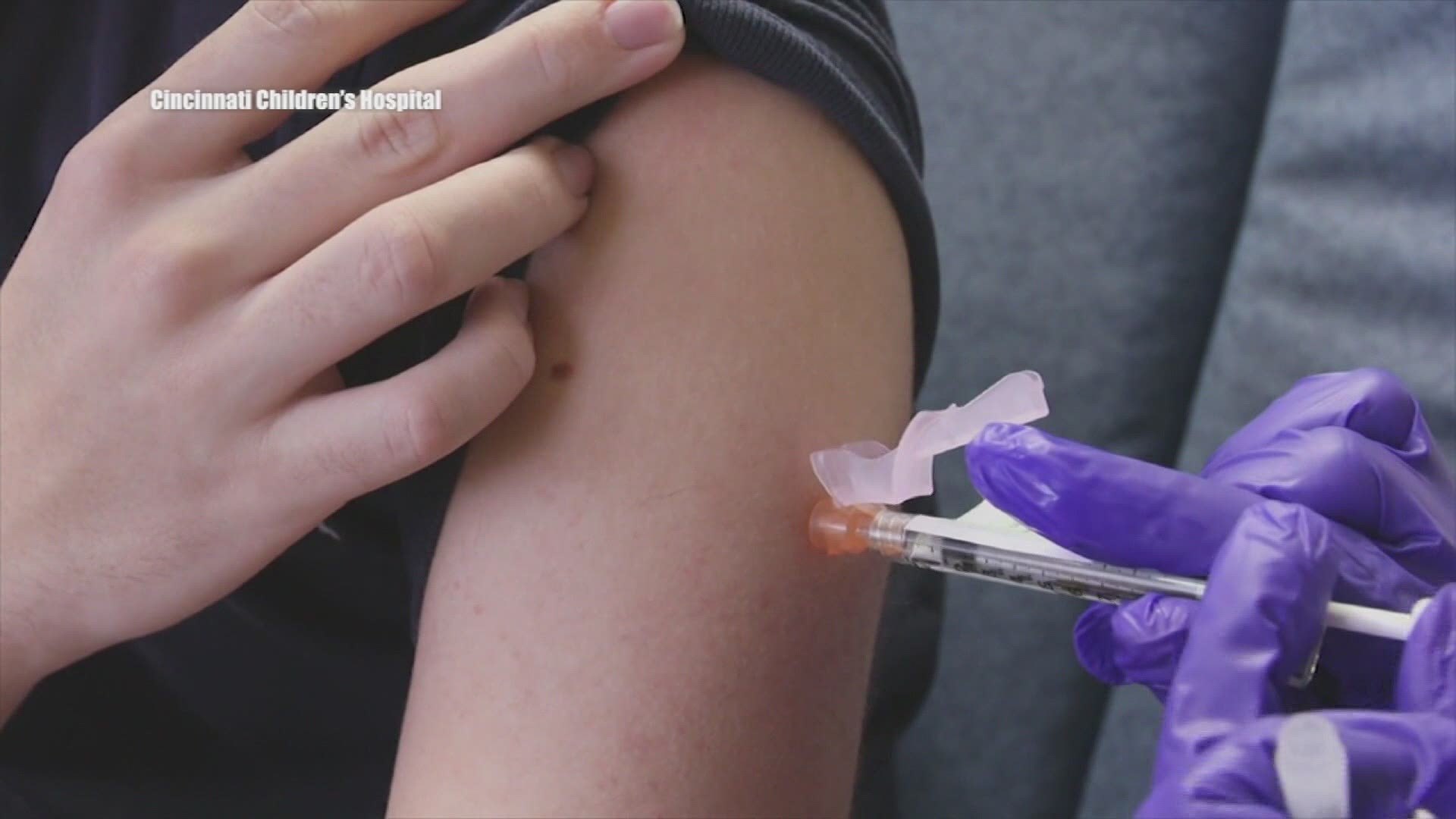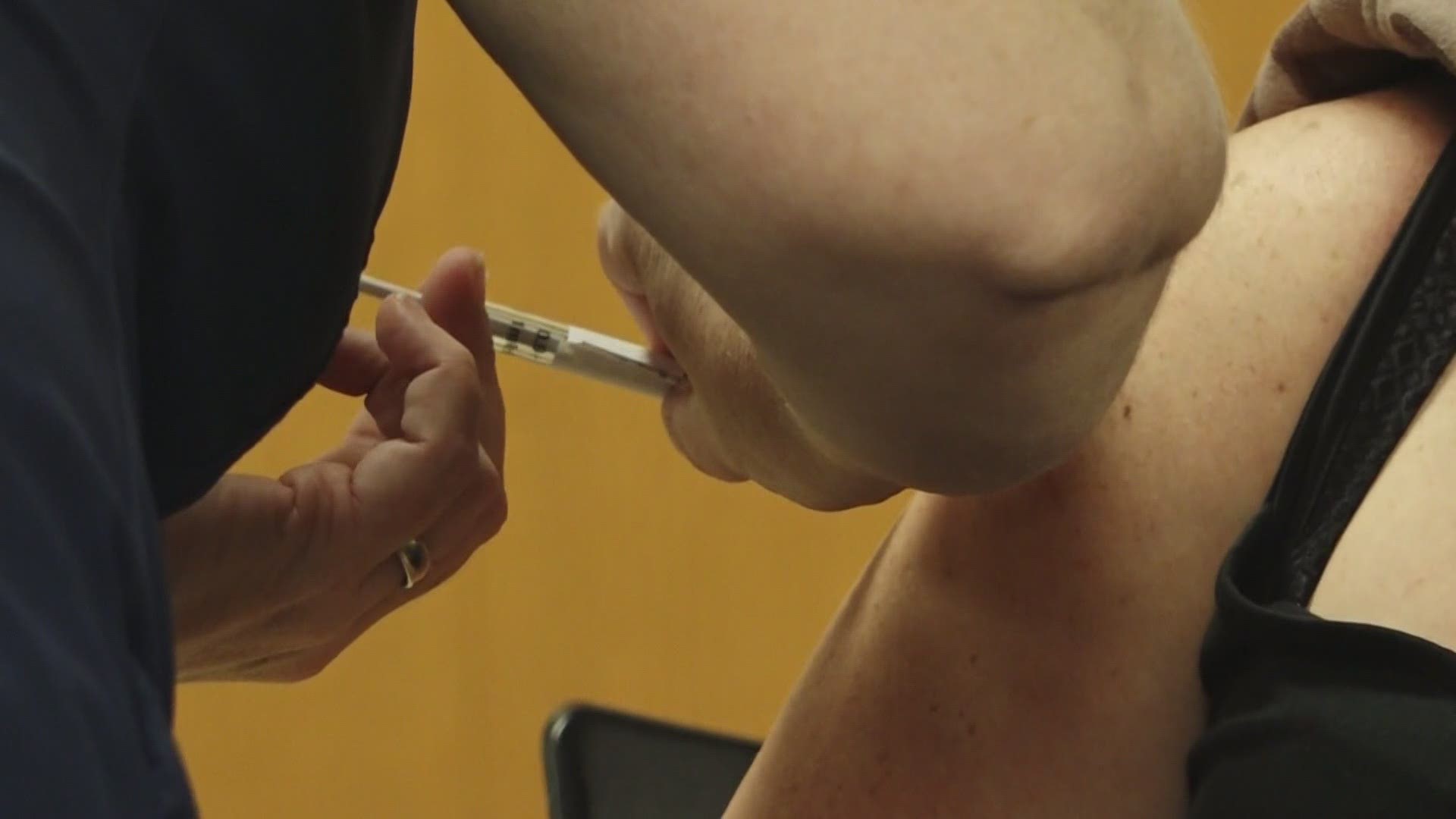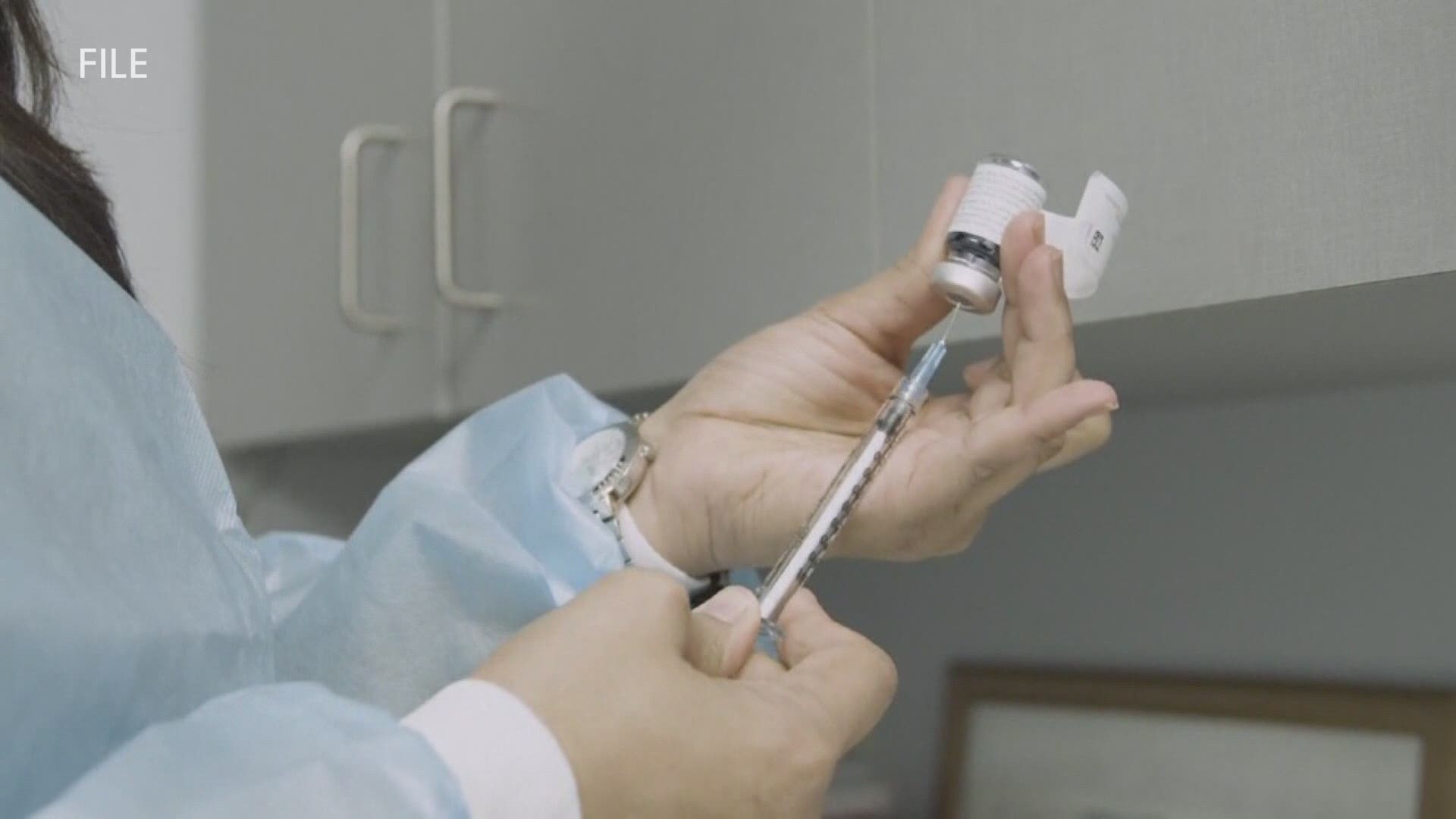GRAND RAPIDS, Mich. — Monday, the state of Michigan reported 338 new COVID-19 cases. State leaders acknowledge a downward trend and attribute it to the number of people that have been vaccinated. More than 4.7 million Michiganders, ages 12 and up, have received at least one dose. Of that number, 314,000 are between the ages of 12 and 19.
Health officials continue to stress the importance of vaccinating more children to completely open to pre-pandemic levels. But what happens if parents and children disagree?
It's an issue that has popped up across the country ever since teens 16 through 18, followed by those 12 to 15, were first allowed to receive the COVID-19 vaccine.
"Generally, when it comes to healthcare of any kind, minors need to have the permission or the consent of their parent or guardian. There's lots of exceptions to that. And the exceptions are going to depend on the state. Because the exceptions are defined by state law," says Denise Chrysler, the director of The Network for Public Health Law, mid-states regional office, located at the University of Michigan School of Public Health.
There are a handful of U.S. states where minors as young as 14 or 15 do not need parental approval. The specific age varies state to state. Chrysler says Washington D.C. even has a law that allows a minor at least 11 years old to give informed consent to a vaccine if it is recommended, for use, by the U.S. Advisory Committee on Immunization Practices (ACIP). COVID-19 vaccines fall into that category, so that law would allow vaccinations.
Michigan is not one of those states. As such, minors, for the most part, are bound by the wishes of their parents.
"When it comes to vaccines, Michigan does not have a law, unless you're emancipated, that would allow a minor to obtain a vaccine," Chrysler says. "This is covered by court opinions, not a statute. Michigan courts recognize that a minor could obtain healthcare in an emergency if a parent or guardian cannot be reached. Also, there are those special services, those sensitive services, where the minor does have the legal ability to give informed consent. A provider, then, makes a decision whether the provider is comfortable treating the minor based on the minor's informed consent."
Those services include substance use disorder treatment, outpatient mental health treatment and family planning, under Title X.
"For Michigan, we have a whole matrix that lists all the different kinds of services where a minor could obtain the service without their parents’ knowledge or permission," she said.
However, according to Rosemary Olivero, a pediatric infectious diseases physician at Helen DeVos Children's Hospital and the division chief of medical specialties, "because the COVID vaccine is not one of these highly confidential medical services, to have access to vaccines, you do need parent or guardian consent. So, when our 12 years of age individuals and up go to receive their COVID vaccine, wherever they go to seek that, they do need to be accompanied by a parent or legal guardian. Now it's highly variable what kind of enforcement there will be for that."
In Michigan, medical care disputes between minors and parents would likely have to be addressed in the courts.
"At times we do have to act quickly to help a patient, even if the family disagrees. Generally, we would involve the authorities in that situation. It could be anywhere from getting Child Protective Services involved or getting a court order to provide a certain level of medical care, if the family does not believe in that and they will not consent for it," says Olivero. "Luckily that's very rare; but it does occasionally happen. When it comes to a vaccine, that's currently under emergency use authorization, that really would not be an appropriate time to exercise that type of authority, to give the vaccine, because we can't mandate the COVID-19 vaccine to anybody, even if we think it's in their best interest. Now, if we had a teenager who we thought was very high risk of COVID-19, getting the virus or suffering a very severe disease from it, then we certainly would want to be more persuasive and in our discussions with the family. But there are other things that we can do to prevent COVID-19 than only the vaccine."
Chrysler says based on the current climate, it is possible the legislature would consider taking a second look at Michigan law regarding minors' consent.
"Oh absolutely. And, when we're talking about participation in sports, and all the potential exposure, and minors who want to be vaccinated, very much so. It could be a matter that would receive legislative attention," she said. "But, as far as a weighing of the factors, if you are a legislative body, you have a number of factors to weigh in deciding when to expand the minors' ability to give consent.
"For example, there may be a vaccine that is under an emergency use authorization, that has had not had the kind of study and results, as our COVID-19 vaccines. Or, there may be vaccines that have much higher risk. And so, it's balancing not just the maturity of minors, but also what is the risk of harm to a minor."
Olivero believes, in most cases, medical providers can help parents and teens resolve these issues by listening to and educating them.
"I think sometimes we get so much into providing information that we miss the opportunity to really understand what the what the questions and concerns are," she said. "So, it really takes an effort in terms of building that relationship, building the trust and actually talking about the available information that we have."
Related video:
►Make it easy to keep up to date with more stories like this. Download the 13 ON YOUR SIDE app now.
Have a news tip? Email news@13onyourside.com, visit our Facebook page or Twitter. Subscribe to our YouTube channel.



